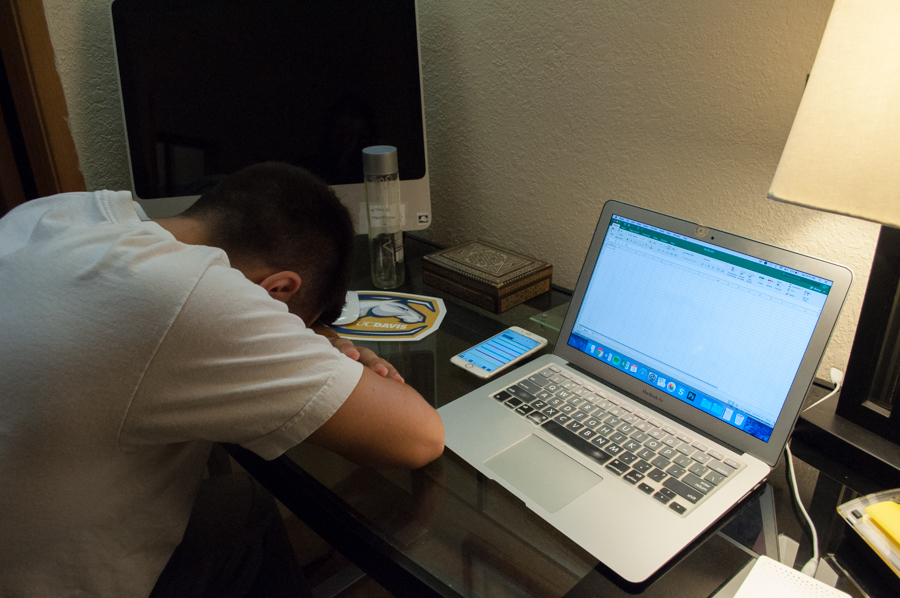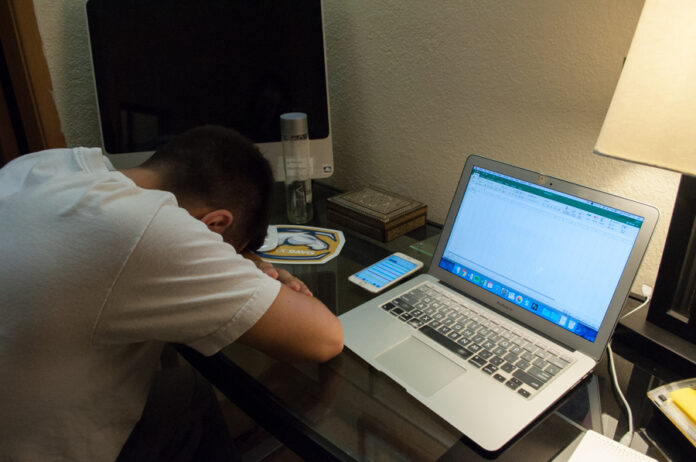
Millennials are loosening their grip on technology to learn to live in the present
A few weeks ago, I got home from work only to realize that I had no plans for the rest of the day. Just as I began to reach for my cell phone to check social media, I paused for a moment and began to wonder how people passed the time before technology was an arm’s reach away. Television became popular in the 1950s, and, before that, the radio was a widespread source of entertainment. But what about before the radio? It’s impossible to imagine spending a day without Netflix, Twitter or Instagram — let alone a day without the internet altogether. Relying on technology oftentimes feels unhealthy and can take away from experiencing life in real time. Considering these facts, I was inspired to look into the new ways in which people are “unplugging” from their devices to embrace the present moment — a trend recently described to me as the “post-technology” attitude.
Through apps like Moment, people are becoming more mindful of their technology use. The app tracks daily screen time and sends the user a notification when they have exceeded a set amount of minutes. I downloaded the app as an experiment and found that I was on my phone for over two hours in a single day. While some of this time was used to coordinate plans, read the news or reply to emails, most of it was spent scrolling mindlessly through social media feeds.
In a podcast entitled “Hooked on Social Media,” Lynne Malcolm discusses how, on the one hand, cell phones and social media have made us smarter, more efficient and more interconnected. That being said, 24/7 access to technology can make us anxious — especially when it involves seeing how others are spending their time and making personal comparisons. By self-monitoring our screen time, we can take advantage of our phone’s efficiency while avoiding the FOMO that results from overuse.
“No phone” policies at certain events have also become more prominent. I attended a wedding earlier this summer where the couple requested a device-free ceremony. Guests turned off their phones completely so that everyone could enjoy the evening and not be distracted taking photos or reading messages. I later learned that my roommate’s brother had followed this same format at his wedding the previous week. It’s disappointing that our society has come to a place where this sort of request is even necessary. Shouldn’t putting your phone away at a wedding be a no-brainer? Nonetheless, it’s comforting to know that more people are becoming aware of cell phone addiction and that they are taking steps to refrain from being constantly distracted.
Digital detoxing has also made an appearance at the dinner table through the “phone stack” game. Players put their phones in a stack at the center of the table, and the first to reach for their device has to pay the entire bill. Parents, too, follow similar guidelines with their children, enforcing “no screen” policies during meals or on weekends. Most recently, I’ve noticed my friends leaving their phones at home when they go out to dinner or run errands, getting time away from the ongoing technological distractions.
Silicon Valley techies are even spreading awareness about technology’s potential toxicity. Tristan Harris, a former Google design ethicist, founded Time Well Spent, an organization dedicated to redesigning apps to make them less addictive. The Time Well Spent website outlines ways in which people can take control of their devices to keep them from being overly distracting. Harris suggests people turn off phone notifications that don’t come from actual people — it’s unnecessary to be notified every time someone comments on a post or likes an old photo. He also highlights the importance of keeping tools such as the alarm clock, GPS, weather, podcast and calendar apps in close reach while making social media apps more difficult to access by placing them on a separate page. These guidelines are about finding a balance between usefulness and mindfulness — we should take advantage of modern technology’s efficiency without falling prey to an addiction that can keep us from enjoying life’s simple pleasures.
After gaining exposure to the so called “post-technology” revival, I was motivated to formulate a cyber detoxing method of my own. Each day, I set a timer on my phone for 30 minutes and don’t allow myself to use my laptop or cell phone whatsoever. I quickly realized that I rely on these devices for virtually everything I do — writing, music, listening to podcasts, reading the news, homework, shopping and much more. However, I also learned that those 30 minutes are some of the most productive of my entire day. I’ve been able to cook, do laundry, catch up on reading, go for walks, paint my nails and have long (in-person) conversations with roommates and friends.
Although I believe that modern technology has the capacity to educate, enhance and connect our society, I also know from firsthand experience that overuse can be toxic. Sharing a meal, catching up with friends, taking a stroll, napping or even learning an entirely new skill can all be done without the use of a screen. Instagram can wait.
Written by: Olivia Rockeman — copy@theaggie.org
Disclaimer: The views and opinions expressed by individual columnists belong to the columnists alone and do not necessarily indicate the views and opinions held by The California Aggie.









